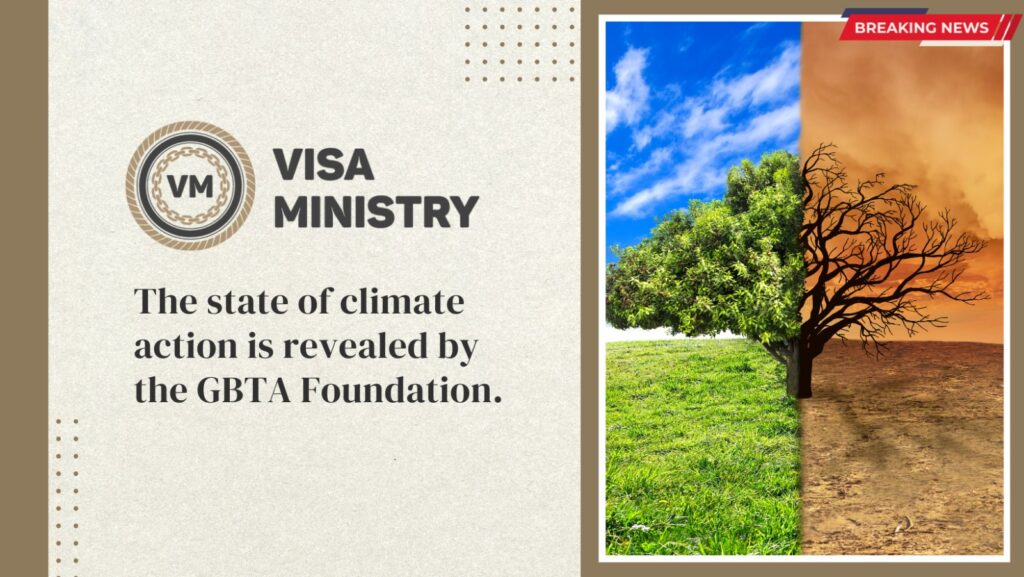According to a recently published report by the GBTA Foundation, the charitable arm of the Global Business Travel Association (GBTA), “The State of Climate Action in Business Travel – Global Industry Barometer 2023,” the time has come for the global travel industry to make significant changes for the climate. The results show that “business travel is at a critical juncture” as the sector continues to adapt to new realities and looks ahead to a more resilient future for international travel.
The research was presented today at the second GBTA Sustainability Summit in Washington, DC, where Suzanne Neufang, CEO of the GBTA, stressed the value of cooperation in fostering a more environmentally friendly future for business travel. The industry’s readiness to take on the challenge is one of the survey’s significant findings; 92% of respondents believe sustainability is a priority for their organisation, up from 89% in a 2022 GBTA report. According to survey responses, Europe (98%) is in the lead for stating it’s a priority, followed by Asia Pacific (100%) and Latin America (both 100%), with North America (86%) somewhat following the other regions.
The Managing Director of the GBTA Foundation, Delphine Millot, stated that the first step in making any type of significant influence is realising that change is required. In order to empower business travellers to choose more environmentally friendly solutions, it will be crucial to engage them and activate the point of sale. Corporate travel managers will play a key role in bringing about this necessary shift. However, in order to get there, she noted, “as an industry we must converge on standards and make the financial commitments required to decarbonize business travel.”
According to a worldwide survey of travel customers and suppliers, the following are some of the report’s significant findings:
Businesses are putting money into sustainability teams: An increase over the previous year (66%), 71% of travel buyers and suppliers claim to have a sustainability team. However, this number reduces to 59% for the hospitality industry, 58% for travel management companies (TMCs), 55% for ground transportation, and 50% for online booking technology when compared to the 90% of airlines who have such devoted sustainability resources.
It all comes down to impact and reputation: The strongest motivators for businesses to adopt sustainability are reputation management (84%) and a sincere desire to have a good impact on the environment (82%).
For their programmes, travel managers are responsible for cutting emissions: The majority of respondents (54%) claim that their organisation has established internal or external targets to lower Scope 3 emissions, which includes emissions from business travel. Another 23% intend to establish similar reduction goals.
Combining journeys is thought to be a strategy for increasing the return on emissions from travel: 74% of travel managers encourage their staff to combine numerous work trips into one trip (55%) or require it (19%).
Travel managers don’t always adhere to their own rules’ stated objectives: According to 38% of those surveyed, justification for same-day business visits is currently requested based on ROI and viable alternatives.
Source- Travel daily

